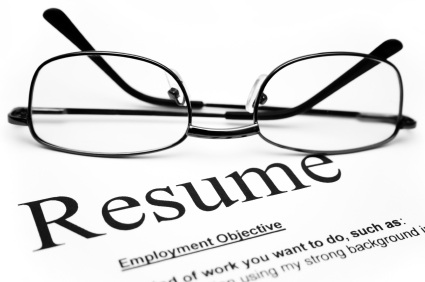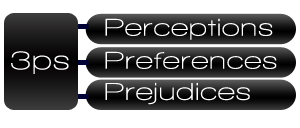The ‘Race Neutral’ Resume – A Tool for Success!
If you are like many sales professionals you may be looking for a new ‘home’ as a result of a number of reasons. You may also be considering finding a job after the turn of the year, as it may be time. If so, you undoubtedly recognize that the resume’ is the window to your qualifications, and even though it has it’s good and bad points as a tool, it is necessary.
That brings us to the notion that the resume is the ‘crow bar’ that opens a crack in the door to give you consideration and an interview. Without the resume’ a hiring manager or human resource representative will have no idea of your talents, or your ability to display them. Which prompts the question ‘du jour’, should your resume’ be ‘race neutral’.
‘Race neutral’ is a term used frequently in education to describe the basis for educational policy that supposedly ignores race as a determining factor. In this case, I am going to use ‘race neutral’ to indicate that your race is not disclosed. Sometimes this might mean the ‘scrubbing’ the resume’ or other correspondence of determinants of race.
I know you are not going to ask why ‘race neutral’, but for those who might wonder I point again to the objective: Getting in front of the manager for an interview. Once there you will at least be able to begin to showcase your values, your abilities, and the fact that you can work in that, and any other environment.
The Applicant Selection Process
As a process, a hiring manager or HR representative potentially sees hundreds of resume’s to fill one position. Remember the first goal, which is to get in for a personal interview. Your charm, skills, and ability to respond to questions and situations will be your tools, but you have to be able to showcase them.
If you follow some simple logic, many of these resumes are going into the ‘D’ stack, as they lack the basic qualifications that were advertised. Some are going into the ‘B’ and ‘C’ stack as they have many of the qualifications, but are unlikely to be contacted, as there appears to be better candidates available.
Then there is the ‘A’ stack. This stack has candidates who meet the basic qualifications, and have some points that create attraction to the reviewer. As a reviewer you start at the top of the ‘A’ Stack and work downward.
Remember, the process of separating into stacks (A, B, C, and D) includes personal input on the part of the manager or HR representative. This area of discretion is a “wild card” for the manager or HR rep. You must end up in A, and hopefully at the top of it to get a strong opportunity to be interviewed. I hope you see that almost anything can put you in the wrong stack, so don’t give anyone the excuse to put you there.
Here is where the perceptions, preference, and prejudice come in.
The Everpresent 3Ps (Perceptions, Preference, and Prejudice)
As I have described in previous posts of this journal (Black Sales Journal 12/30/2010, The 3Ps and Your Employer) the 3Ps can have an effect, and sometimes an insidious effect on the hiring process. It can happen without the perpetrator even really thinking about it.
Brief Definitions:
Perceptions are hard to change, and deep rooted. They can come from many sources. A person’s life experiences, the media, parents, friends, and the knowledge and ignorance of interaction or lack of interaction all form perceptions. Perceptions are prevalent in all racial and ethnic groups. We all have them; it is what we do with them that make all of the difference. Managers have perceptions too!
Preferences are powerful. They are not always meant to be deleterious to a particular racial group, yet have that effect when they are applied as the opportunity for fairness and equity is missed as the customer’s (in this case) preference is carried out. The hiring manager’s desire of whom they want to work with is directly related to their relationship comfort. Some preference may come from perceptions, and some from prejudice, but the net result is the same: The sales professional who is capable is not interviewed because they don’t quickly meet the preference of the hiring manager. Often it is because of a reluctance to do business with someone who is decidedly different than themselves.
Prejudice renders any situation difficult, if not impossible. It should never be endorsed, whether it involves sales or any other endeavor. Prejudice does change the landscape. You probably won’t change it as you can do perceptions and preference, and you may be able to spend your time better elsewhere. If a buyer is prejudice, the narrow-mindedness and patent unfairness will reduce, or destroy your chances of having a successful business relationship, or keep it very short lived.
Now, the simple fact is that any one of these Ps can change which stack you are in. So at the risk of sounding over simplistic when it is to your advantage you should willingly disclose your race. When you are in doubt, you should give consideration to ‘scrubbing’ your resume of racial indicators.
Of course there are times when you have no choice, and times such as job fairs when it will be obvious when you hand someone your resume, but in the overall, unless you suspect that it is an advantage, you should exercise discretion.
I am not saying don’t be proud of your race or the events and groups you were or are involved in. I am saying that to give yourself the highest probability of an interview based on the logic that you have no idea of the background, preferences, or perceptions of the reviewer.
Your resume replete with work accomplishments should give a clear picture of everything necessary to compare to the other candidates. It is a portrait of your qualifications, accomplishments, and job history and the reviewer should be enticed to move to the next step.
Sometimes it Takes Two
I am an advocate of having two resumes, or even more. Each stressing what you need to stress, depending on the nuances of the job. If that is the case, you can have a resume that is all-inclusive, which shows everything, as well as a resume that is ‘scrubbed’ and used when you want to show race neutrality in your solicitation effort. There are some cases where you might be from a historically Black college or university where you would not want to consider any changes or scrubbing. That is understood.
More than anything else you should take the time to frame yourself in the light you want to be seen. It will increase your effectiveness in the long run.
Always be effective.
Your comments are welcome.
 December 27, 2012
|
Posted by Admin9!
December 27, 2012
|
Posted by Admin9!


 Categories:
Categories:  Tags:
Tags: 

Your Comments